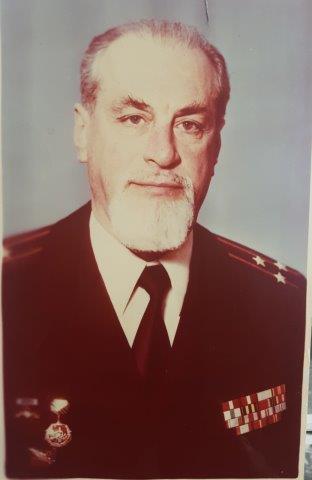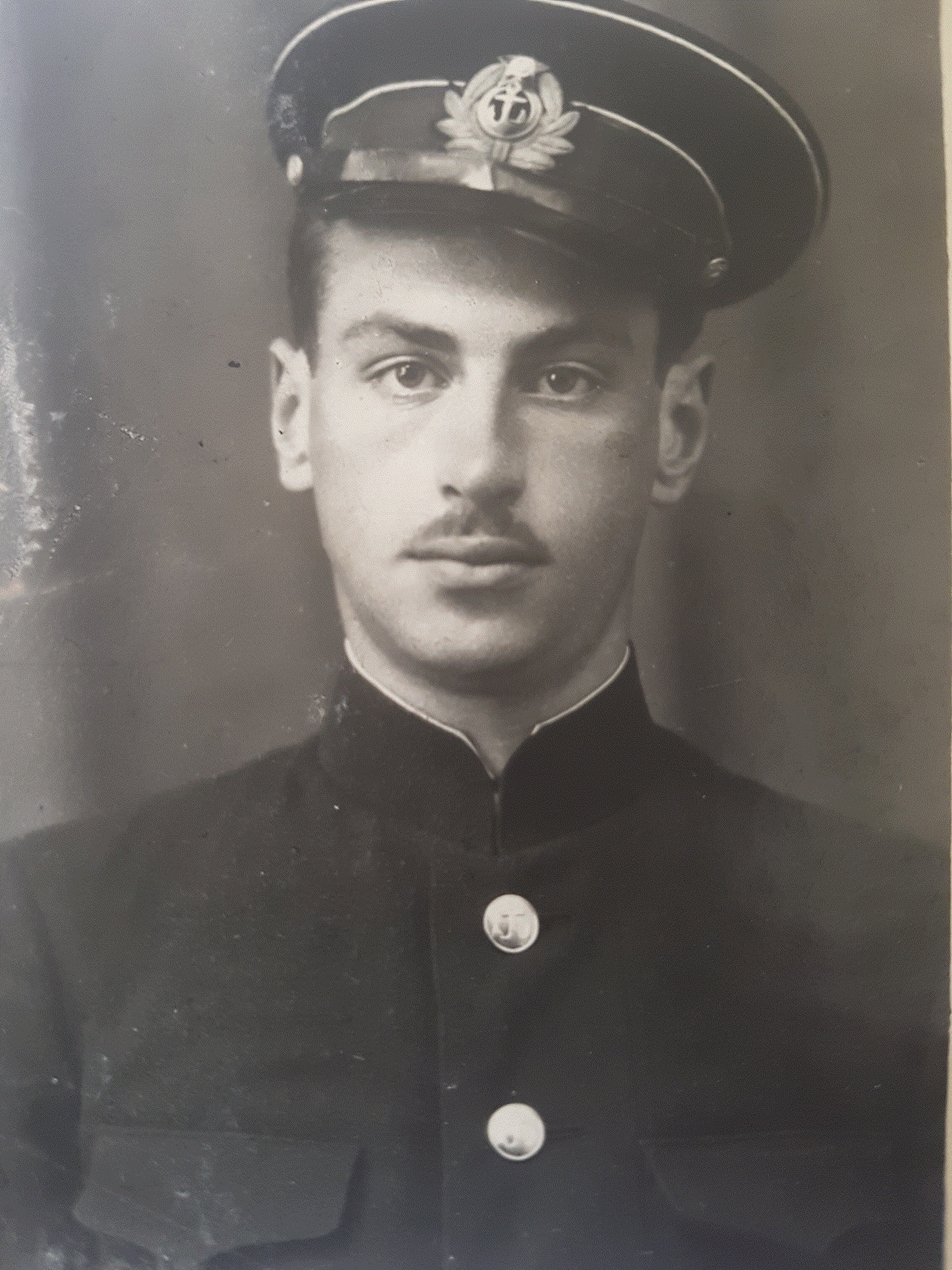Mikhail Chernin was born in Minsk in 1921. His father Boruch worked at various times as treasurer of a Jewish community and teacher at a Yeshiva. His mother Helga (Yelena) was a teacher.
In 1924, the Chernin family, like many other Jews at the time, moved to Leningrad (present-day Saint Petersburg). Mikhail finished school there. In 1938, he enrolled in the Faculty of Law of Leningrad State University.
In late June 1941, when Germany invaded the Soviet Union, Chernin was about to complete his fourth year of study. Along with most of his fellow students, he was drafted into the Red Army. During the next year, he studied at the Military Law Academy, which trained military lawyers.
Mikhail's parents and younger brother stayed behind in Leningrad. His mother was killed in a bombing in the fall of 1941, in a suburb of Leningrad where she had been sent with her students to dig defensive trenches. His father Boruch starved to death in besieged Leningrad as the cold winter of 1943 set in. Later, in spring 1943, Mikhail managed to save his younger brother Grigory from malnutrition and rescue him from Leningrad. Grigory later served in the army.
During the war, Legal Senior Lieutenant Mikhail Chernin served in the Caspian Flotilla in Baku, Azerbaijan – a city that served as the primary strategic center for supplying fuel to the Soviet air force and armored corps.
Later, in October 1944, Mikhail Chernin participated in the Petsamo–Kirkenes Offensive. In that operation, which took less than a month, the forces of the Karelian Front and the vessels of the Northern Fleet routed the German army stationed in northern Finland, eliminating the threat to the Port of Murmansk and the northern sea-lanes of the Soviet Union, and liberating northern Norway. For his part in this operation, Mikhail Chernin was awarded the Order of the Red Star.
Chernin met V-E Day on the Rybachy Peninsula, a strategically important location that controlled the entry into the Kola, Motovsky, and Pechenga Bays.
After the war, Mikhail Chernin continued to serve in the Soviet Navy, being posted to various locations in the Soviet Union –Kaliningrad, the Olga Bay (in the Sea of Japan on the east coast of Primorsky Krai), Vladivostok, and Baku – and holding diverse jobs, from deputy head of an investigation unit to assistant prosecutor.
Stalin's death in March 1953 ushered in a wave of "liberalization", and people wrongfully convicted of political offences began to be released from camps or posthumously rehabilitated. Special committees were set up to reexamine these cases, and they included senior officials of the Procurator General, the KGB, the Ministry of Internal Affairs, and the Ministry of Justice of the USSR. Chernin was a member of one such group. He was intimately acquainted with this issue, since his father-in-law was an "enemy of the people".
In 1973, Chernin moved from Kaliningrad to Leningrad, continuing his service in the Baltic Fleet. He retired in 1978 as captain of the 2nd rank. Afterward, he worked as a legal advisor at a construction trust in Leningrad.
In 1989-1990, when the antisemitic Pamyat society was gaining strength in Leningrad, Mikhail Chernin repeatedly received threatening letters. However, he was undeterred, and made no attempt to conceal his Jewishness.
Mikhail Chernin died in Leningrad in 1998.








